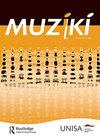“Mdhara Vachauya” (The Old Man Is Coming) and “Kutonga Kwaro” (His/Her Style of Governance): Analysing Jah Prayzah’s Music in Zimbabwe’s Tumultuous Political Context
IF 0.8
0 MUSIC
引用次数: 1
Abstract
Abstract Music has never been politically neutral; rather, it is composed and performed in definite historical, social, political and economic contexts. Furthermore, musical lyrics often carry open or hidden political messages. The interpretation of musical texts has thus often generated contestation in different contexts. This article examines the appropriation and contested interpretation of two songs by one artist, Jah Prayzah (the stage name of Mukudzei Mukombe), in Zimbabwe during the last years of the late President Robert Mugabe’s rule. It analyses how these two songs were utilised in political struggles by different players on the Zimbabwean political scene. The article argues that the malleability of songs enabled various political groups to adopt Jah Prayzah’s song “Mdhara Vachauya” (The old man is coming!) released in 2016 to express their hopes and aspirations. Similarly, his song “Kutonga Kwaro” (His/her style of governance) was embraced by one faction in the Zimbabwe African National Union–Patriotic Front (ZANU–PF) to call for a change of guard. When Emmerson Mnangagwa, Mugabe’s deputy, assumed power on 24 November 2017, the theme song was “Kutonga Kwaro”, newly released in the same year. Its ascendancy, like his own, had been severely contested. However, musical texts are not entirely divorced from the identity of the artist. Thus, Jah Prayzah’s personality and self-presentation are also analysed in the article. The central argument is that the artist’s self-packaging, perceived political loyalties and association had a distinct impact on the reception of his music.“Mdhara Vachauya”(《老人来了》)和“Kutonga Kwaro”(他/她的治理风格)——在津巴布韦动荡的政治背景下分析Jah Prayzah的音乐
抽象音乐从来都不是政治中立的;相反,它是在特定的历史、社会、政治和经济背景下创作和表演的。此外,音乐歌词往往带有公开或隐藏的政治信息。因此,对音乐文本的解读经常在不同的语境中产生争议。这篇文章探讨了已故总统罗伯特·穆加贝统治的最后几年,艺术家Jah Prayzah(Mukudzei Mukombe的艺名)在津巴布韦对两首歌曲的挪用和有争议的解读。它分析了这两首歌是如何被津巴布韦政治舞台上的不同参与者用于政治斗争的。文章认为,歌曲的可塑性使各个政治团体能够采用Jah Prayzah在2016年发行的歌曲《Mdhara Vachauya》(老人来了!)来表达他们的希望和抱负。同样,他的歌曲《Kutonga Kwaro》(他/她的治理风格)也受到津巴布韦非洲民族联盟-爱国阵线(ZANU-PF)中一个派系的欢迎,呼吁换防。当穆加贝的副手Emmerson Mnangagwa于2017年11月24日掌权时,主题曲是同年新发行的《Kutonga Kwaro》。它的统治地位,就像他自己的统治地位一样,受到了激烈的竞争。然而,音乐文本并没有完全脱离艺术家的身份。因此,文章还分析了贾的人格和自我呈现。核心论点是,艺术家的自我包装、政治忠诚和联想对他的音乐接受度产生了明显的影响。
本文章由计算机程序翻译,如有差异,请以英文原文为准。
求助全文
约1分钟内获得全文
求助全文

 求助内容:
求助内容: 应助结果提醒方式:
应助结果提醒方式:


